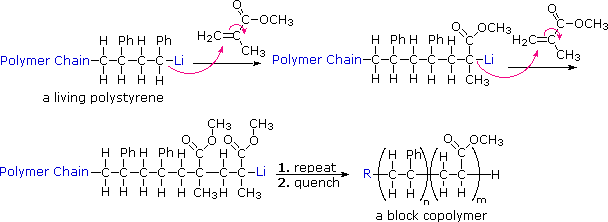Polymers in Building And Construction: Stronger, Lighter in weight, and Extra Durable
Polymers in Building And Construction: Stronger, Lighter in weight, and Extra Durable
Blog Article
Discovering the Varied Applications and Advantages of Polymers in Different Industries
Polymers, with their diverse array of residential or commercial properties and capabilities, have actually become important in different markets, each enjoying special benefits from their application. From boosting security and efficiency in the vehicle industry to changing medical gadgets in the healthcare market, polymers play a critical function.
Automotive Sector Applications
Polymers play a crucial function in enhancing the performance and sturdiness of different parts within the auto industry. One popular use of polymers in the automobile sector is in the manufacturing of light-weight components.

Health Care Market Benefits
In various healthcare applications, the benefits of utilizing polymers are widely acknowledged for their diverse series of useful buildings. Polymers play a critical function in the health care sector as a result of their adaptability, biocompatibility, and cost-effectiveness. Among the key advantages of polymers in medical care is their capacity to be customized to particular demands, such as adaptability, sturdiness, and biodegradability, making them suitable for a large range of medical applications.
Polymer-based products are thoroughly used in clinical tools, such as catheters, implants, prosthetics, and medicine shipment systems, due to their biocompatibility and ability to mimic all-natural tissues. These materials can lower the threat of sensitive reactions or rejections, enhancing patient safety and results. Furthermore, polymers are lightweight, making them suitable for wearable clinical tools and making certain client convenience.
Moreover, polymers make it possible for the growth of cutting-edge therapy approaches, such as hydrogels for tissue engineering and nanocomposites for targeted drug distribution. Their ease of processing and sanitation makes them important for maintaining high standards of health in health care setups. In general, the varied benefits of polymers contribute considerably to developments in medical modern technology and person treatment.
Environmental Benefits of Polymers

Additionally, polymers can add to energy financial savings due to their light-weight nature. In markets such as transport, light-weight polymer materials can help in reducing fuel intake and greenhouse gas exhausts. Additionally, polymers can make it possible for the development of energy-efficient products such as insulation materials that boost power conservation in buildings.
Additionally, polymers play an important duty in minimizing water contamination. For instance, making use of polymer-based purification systems can properly remove pollutants and contaminants from wastewater, protecting water resources and environments. Generally, the environmental advantages of polymers make them important properties in promoting sustainability and green techniques throughout various sectors.
Polymers in Electronics and Technology
Taking into consideration the increasing demand for cutting-edge and sustainable remedies in contemporary markets, the integration of advanced polymer technologies in the world of electronic devices and technology has actually emerged as an essential approach for driving effectiveness and performance. Polymers have revolutionized the electronics industry by enabling the production of lighter, much more adaptable, and resilient digital gadgets. From smart devices to clinical tools, polymers play an important role in improving product design and functionality.
One substantial benefit of polymers in electronic devices is their shielding residential or commercial properties, which aid shield delicate digital elements from environmental variables and electric disturbance. In addition, polymers are important in the growth of versatile screens, wearable modern technology, and printed electronic devices, supplying endless opportunities for producing clever and interconnected devices.
Furthermore, making use of polymers in electronic product packaging has brought about innovations in miniaturization and thermal management, improving the general performance and reliability of electronic systems. As modern technology proceeds to evolve, the convenience and adaptability click site of polymers will definitely drive further advancement in the electronics industry, shaping the future of modern technology.
Duty of Polymers in Building and Facilities
Polymers supply countless advantages in the building sector due to their flexibility, sturdiness, and cost-effectiveness. One essential duty of polymers in building and construction is their usage sites in finishings and sealers, giving security against ecological variables such as wetness, UV radiation, and rust.
Additionally, polymers play an important duty in lasting building methods by allowing the growth of energy-efficient frameworks. Shielding materials made from polymers assist regulate interior temperatures, lowering the demand for heating and cooling down systems and eventually decreasing power intake. Furthermore, making use of polymer-based composites in facilities jobs such as bridges and roadways boosts their longevity and lowers upkeep prices. Generally, the consolidation of polymers in building and framework displays their significant impact on modern-day design techniques.
Conclusion
In conclusion, polymers play an important duty in different industries such as auto, healthcare, environmental, electronic devices, and building and construction. Their flexible residential or commercial properties make them useful in developing innovative options and products. From improving fuel performance in cars to enhancing medical tools, polymers use various advantages. Additionally, their influence like this on lowering waste and advertising sustainability highlights their relevance in modern-day applications. The prevalent use polymers shows their considerable payment to progressing innovation and enhancing quality of life.
Report this page